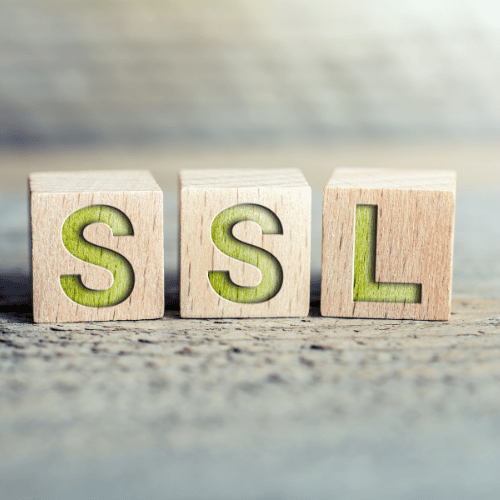What is Let’s Encrypt?
Let’s Encrypt is a free, automated, and open certificate authority (CA) sponsored by the Internet Security Research Group (ISRG). Their goal is to make HTTPS the standard across the web by making SSL certificates accessible to everyone.
Key characteristics of Let’s Encrypt:
- Completely free SSL/TLS certificates
- Domain Validation (DV) only certificates
- Automated issuance and renewal
- Widely trusted by browsers
Let’s Encrypt certificates are designed to be simple and accessible, especially for small websites and projects.
What are paid SSL certificates?
Paid SSL certificates are offered by commercial Certificate Authorities like:
- DigiCert
- Sectigo (formerly Comodo)
- GlobalSign
- GoDaddy
- Thawte
- Entrust
These certificates come in different types - DV, OV (Organization Validation), and EV (Extended Validation) and often include additional features like warranties, customer support, and extended validation processes. Paid SSL certificates cater to businesses that need more than just encryption - they offer branding trust, legal protection, and customer reassurance.
Pros and cons of Let’s Encrypt
Pros
- It’s free: No licensing or renewal costs. Ideal for personal websites, blogs, and non-commercial projects.
- Automated and fast: Certificates can be issued and renewed automatically via integrations with web servers like Apache, Nginx, and hosting panels like cPanel.
- Trusted globally: Let’s Encrypt certificates are trusted by all major browsers and mobile devices.
- Open and transparent: Open source community, with publicly accessible data.
Cons
- DV certificates only: Only validates domain ownership - no organization or business identity verification.
- Short certificate lifespan: Certificates are valid for only 90 days, requiring frequent renewals (automated tools help, but failures can happen).
- No warranty: If something goes wrong (e.g., certificate compromise), there’s no financial protection.
- No dedicated support: Users rely on forums and community help—no professional support for emergencies.
- Not ideal for e-commerce: Basic SSL may not inspire enough trust for online shops or financial services.
Pros and cons of paid SSL certificates
Pros
- Wide range of validation options: Choose between DV, OV, and EV depending on your security and branding needs. EV certificates display the verified business name in the browser (enhancing trust).
- Warranty and insurance: Financial protection if the certificate is misused or fails.
- Professional customer support: 24/7 technical assistance via chat, email, or phone.
- Longer validity periods: Certificates can last up to 2 years, reducing the risk of expiration.
- Stronger brand trust: Especially important for businesses that handle sensitive data or transactions.
- Additional features: Some paid SSL providers offer vulnerability scans, malware protection, and website security tools bundled with the certificate.
Cons
- Cost: Ranges from $10/year (basic DV) to several hundred dollars/year (EV or wildcard certificates).
- Longer issuance for OV/EV: EV certificates can take several days due to business verification processes.
- Manual installation for some providers: Not all hosting providers automate paid SSL installation.
When should you choose Let’s Encrypt?
Let’s Encrypt is a great choice if:
- You run a personal blog, portfolio, or non-commercial site.
- You want basic encryption without paying for advanced features.
- You have a tech-savvy team capable of handling SSL automation.
- You’re hosting on platforms that natively support Let’s Encrypt (e.g., WordPress.com, Netlify, Vercel).
In short: If your website doesn’t collect sensitive user data (like payment information), Let’s Encrypt is usually enough.
When should you choose a paid SSL certificate?
Paid SSL certificates are recommended if:
- You operate an e-commerce store, banking service, SaaS platform, or enterprise website.
- You want to verify your business identity to users (via OV or EV).
- You need legal protection and warranties.
- You can’t risk downtime due to SSL issues.
- You require specialized certificates, like Wildcard, Multi-Domain (SAN), or Code Signing certificates.
In short: If trust, reputation, and reliability are crucial, a paid SSL is the safer investment.
SSL misconceptions: Clearing things up
- Myth: “Paid SSL is more secure than Let’s Encrypt.” Reality: Both types offer the same level of encryption (256-bit). The difference is in validation, trust signals, and warranty - not encryption strength.
- Myth: “Let’s Encrypt certificates are not trusted by browsers.” Reality: They are trusted just like any paid certificate.
- Myth: “I don’t need SSL because I don’t sell anything.” Reality: Modern browsers flag all non-HTTPS sites as Not Secure, hurting SEO and scaring users.
Both Let’s Encrypt and paid SSL certificates have their place. The right choice depends entirely on your website’s purpose, audience, and risk profile.
- For personal projects, non-profits, or budget-conscious startups, Let’s Encrypt is an excellent solution.
- For businesses, e-commerce, financial services, or any site where trust and data protection are mission-critical, paid SSL certificates are a wise investment.
When in doubt, remember: SSL is about more than encryption - it’s about trust. And trust is what drives users to stay, engage, and convert.
